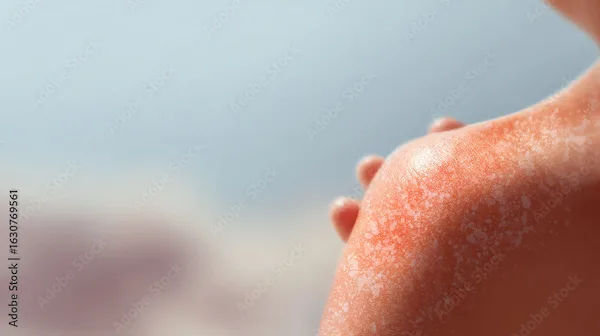- Male
- 26 Years
- 22/01/2025
I'm dealing with this fungal infection for the past two months. It seems to get better when I'm on medication, but the moment I finish the course, the infection comes right back. Is there something I might be missing or doing wrong? It's getting really frustrating and I could use some advice on what to do next.
Answered by 1 Apollo Doctors
Candid cream for local application is advised for 3 weeks, along with tab flucanozole 150 mg once a week for 2 weeks is advised to the patient.
Dr. Dr Khaleel Suggests...
Consult a Dermatologist
Answered 04/07/2025
0
0

More Dermatology Health Queries
View allI've noticed these soft, fatty lumps under the skin on my hands and legs they don't hurt but they're bothering me. Could these be lipomas? I'm open to surgery if that's the best option but wanted to check what treatments are usually recommended for this
It's possible the soft, fatty lumps you're experiencing are lipomas. These benign growths are harmless and often don't require treatment, but if they're bothersome or causing symptoms, removal options like surgical excision or liposuction are available.
Answered by 1 Apollo Doctors
I'm genuinely concerned about the heat in my body and how it's affecting my health. I've been getting ulcers in my mouth or on my tongue almost every month. It's really uncomfortable, and I'm starting to wonder what's causing them. Is the heat in my body connected to these frequent ulcers? How can I reduce this heat or prevent them from happening so often? Would love to hear your thoughts on this!
To decrease body heat, try: staying hydrated, wearing light clothing, taking cool showers or baths, practicing relaxation techniques like meditation or deep breathing, and avoiding spicy or heavy foods; regarding ulcers, the main reasons include: stress, hormonal changes, vitamin deficiencies (B12, iron), acidic or spicy foods, and underlying conditions like gastrointestinal issues or autoimmune disorders; to prevent monthly ulcers, consider keeping a food diary to track triggers, practicing good oral hygiene, and consulting your doctor or dentist for personalized advice.
Answered by 1 Apollo Doctors
I'm really concerned about my skin. I have a normal skin type, and I recently used the Himalaya Neem face pack. Since then, I've noticed pimples appearing, which I've never had before. Do you have any idea why this might be happening or what I could do to clear up my skin and prevent pimples and acne?
clinsol gel for local application is advised..
Answered by 1 Apollo Doctors
Disclaimer: Answers on Apollo 247 are not intended to replace your doctor advice. Always seek help of a professional doctor in case of an medical emergency or ailment.



